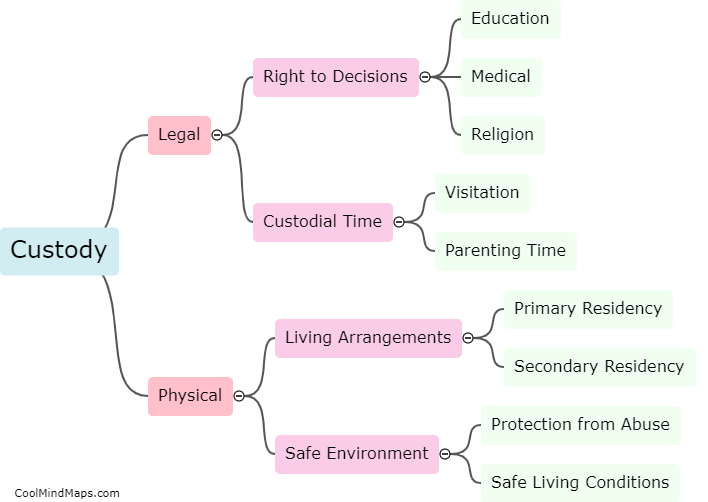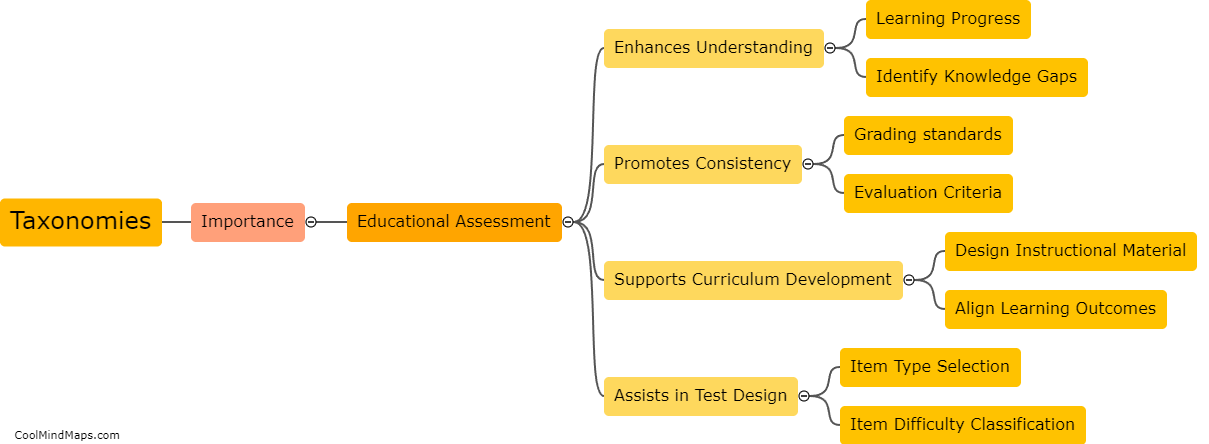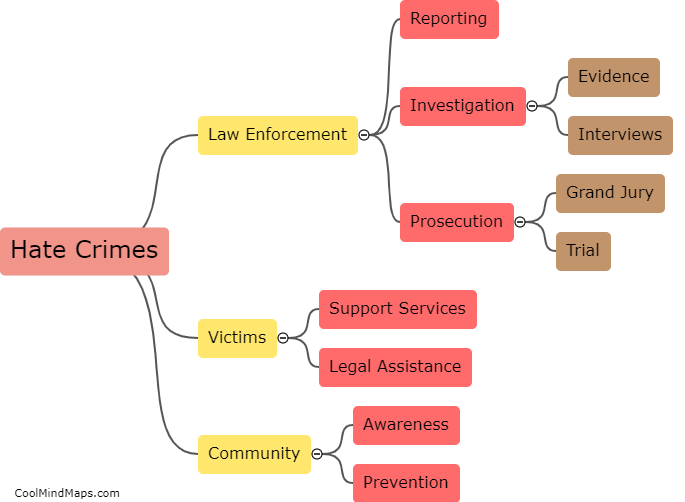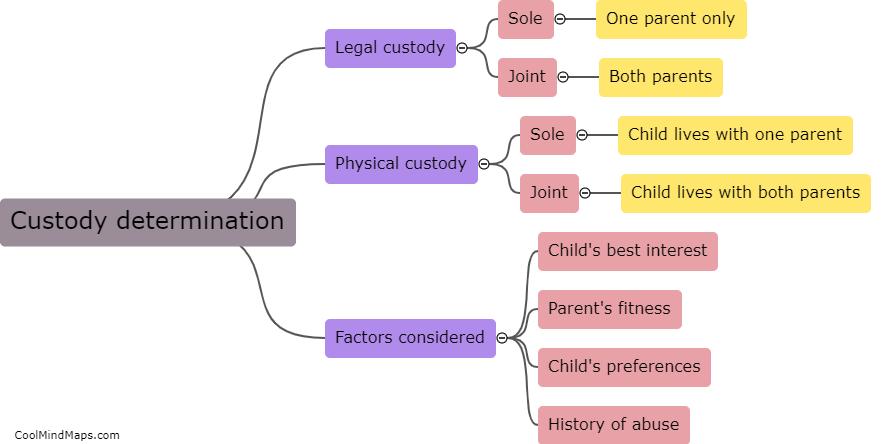What is the difference between legal and physical custody?
Legal custody refers to the right of a parent to make major decisions for their child such as healthcare, education, and religious upbringing. Physical custody, on the other hand, refers to where the child lives and spends their day-to-day time. Physical custody can also take on different forms such as sole physical custody where the child lives primarily with one parent, joint physical custody where the child spends equal time with both parents, or shared physical custody where the child splits their time between both parents but not necessarily equally. Both legal and physical custody arrangements can be determined through court orders or through agreements made between the parents.

This mind map was published on 18 April 2023 and has been viewed 88 times.











